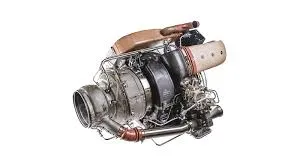Jul . 20, 2024 02:51 Back to list
Exploring the Benefits and Features of Hydraulic Cylinders for Door Mechanisms and Applications
Understanding Door Hydraulic Cylinders A Comprehensive Overview
In the realm of modern mechanical engineering, hydraulic systems play a pivotal role in enhancing operational efficiency and reliability. One of the most significant applications of hydraulic technology is in door hydraulic cylinders. These cylinders are integral components in various types of doors, especially in automated and industrial contexts. This article delves into the function, benefits, and considerations of door hydraulic cylinders, shedding light on how they revolutionize door mechanisms.
What Are Door Hydraulic Cylinders?
Door hydraulic cylinders are devices that use hydraulic fluid to create controlled movements, facilitating the opening and closing of doors. These cylinders consist of a cylindrical barrel, a piston, and hydraulic fluid, which together create force when pressured. When the hydraulic fluid is compressed, it displaces the piston, which in turn moves the door either open or shut. This mechanism is particularly advantageous in heavy doors or where rapid movement is required.
Benefits of Door Hydraulic Cylinders
1. Efficiency Hydraulic cylinders are designed to handle significant loads with minimal effort. This means they can easily operate heavy doors without excessive manpower. Their ability to generate high force at low power consumption makes them an efficient choice in various settings, including factories, airports, and commercial buildings.
2. Precision Control The hydraulic system allows for precise control over the speed and position of the door. Users can adjust the flow of hydraulic fluid to the cylinder, enabling smooth and gradual door movements. This is particularly important in environments where safety and caution are critical, such as medical facilities and automotive production lines.
3. Durability and Reliability Constructed from robust materials, door hydraulic cylinders are designed to withstand various environmental conditions. They are less prone to wear and tear compared to mechanical systems, leading to reduced maintenance costs and increased reliability over time.
4. Versatility Hydraulic cylinders are adaptable for various door types, including swinging, sliding, and folding doors. This versatility allows them to be utilized in diverse applications, from residential home garages to large industrial warehouses.
door hydraulic cylinder product

5. Safety Features Many modern hydraulic cylinders come equipped with safety features such as overload protection valves, which prevent the door from closing too quickly or with excessive force. This adds an extra layer of safety, minimizing the risk of accidents or injuries in busy environments.
Considerations When Choosing Door Hydraulic Cylinders
While door hydraulic cylinders offer numerous advantages, several factors must be considered when selecting the appropriate system for your needs
- Load Capacity It's essential to determine the maximum weight that the door will need to support and choose a cylinder that can handle that load effectively.
- Operating Environment The environmental conditions, such as temperature, humidity, and potential exposure to chemicals, will influence the choice of materials and design of the hydraulic cylinder.
- Maintenance Regular inspection and maintenance are vital to ensure the longevity of hydraulic systems. Operators should be trained in the operation and upkeep of the hydraulic cylinders to prevent issues.
- Installation Professional installation may be necessary to ensure that the hydraulic cylinders are set up correctly for optimal performance. Poor installation can lead to increased wear and operational difficulties.
Conclusion
Door hydraulic cylinders are a testament to the advancements in hydraulic technology, combining efficiency, precision, and reliability in door mechanisms. Their versatile application across various sectors signifies their importance in modern engineering solutions for both residential and industrial needs. By understanding their benefits and considerations, stakeholders can make informed decisions that enhance safety and efficiency in their operations. As technology continues to evolve, the role of hydraulic systems in door mechanisms will likely expand, paving the way for innovative designs and applications.
-
Fork Lift Power Units - Hebei Shenghan | Efficiency, Reliability
NewsJul.13,2025
-
1.5-Ton Turbocharged Cylinder-Hebei Shenghan|Hydraulic Solution,Energy Efficiency
NewsJul.13,2025
-
Auto Hoist Power Units-Hebei Shenghan|Efficiency&Industrial Lifting
NewsJul.13,2025
-
Double Acting Power Units-Hebei Shenghan|Hydraulic Solutions,Industrial Efficiency
NewsJul.13,2025
-
1.5 Ton Lifting Cylinder 70/82-40-290-535 - High-Performance Hydraulic Solution | Hebei Shenghan
NewsJul.13,2025
-
Fork Lift Power Units - Hebei Shenghan | Efficiency&Reliability
NewsJul.13,2025
